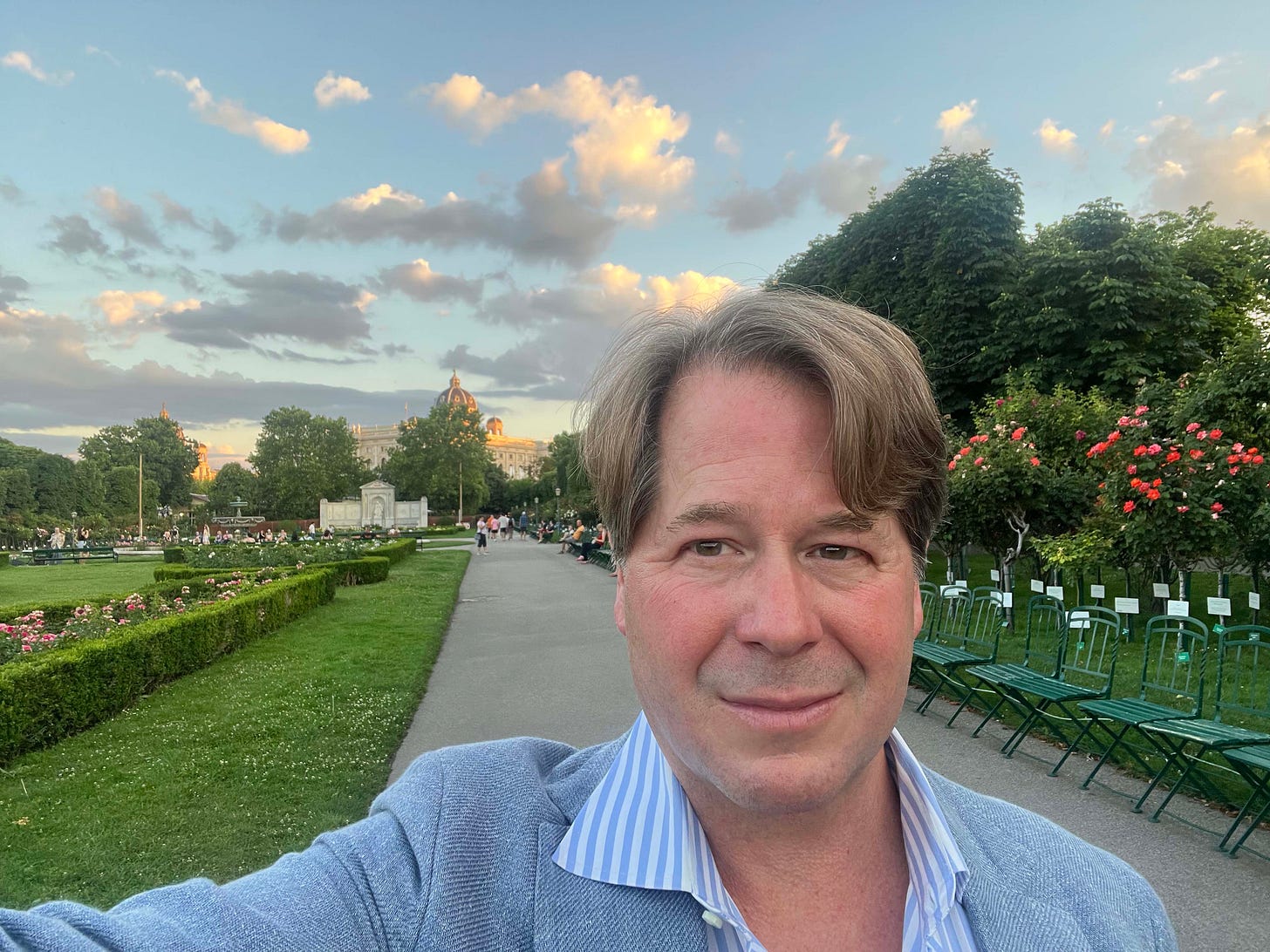Where To From Here?
Pondering what Europe will be like a century from now
Summer surprised us, coming over the Starnbergersee
With a shower of rain; we stopped in the colonnade,
And went on in sunlight, into the Hofgarten,
And drank coffee, and talked for an hour.
I always think of the above lines from T.S. Eliot's "The Waste Land" whenever I'm in Europe in the summer. Eliot wrote the poem in 1922, and he was referring to the Hofgarten in Munich, but the expression of leisure and conversation in an urban garden remind me of the Vienna Burggarten or the nearby Volksgarten. The old royal families of Europe understood how to build cities.
I often marvel that the Volkgarten and all the splendid, monumental buildings that surround it were completed in 1888—just thirty years before the end of the Habsburg’s 636-year reign and the dissolution of the Austro-Hungarian Empire.
People with power and wealth have often been lulled into believing that they are far more secure than they really are. Things can fall apart very quickly, especially when one accrues too much debt and embarks on big, risky military adventures. I know people from aristocratic families who had possessed considerable property for centuries, and ended up chopping up furniture for firewood to get through the winter of 1918-1919.
“The Waste Land” seems to be an expression of Eliot’s perception that Western Civilization, with its roots in classical antiquity and the Christian religion, had been spiritually laid to waste by the Great War and its millions of dead.
The poem contains numerous allusions to the art and literature of the past, but they are fragmented and ruined.
What are the roots that clutch, what branches grow
Out of this stony rubbish? Son of man,
You cannot say, or guess, for you know only
A heap of broken images . . .
Here’s a portrait of him taken in 1920, when he was contemplating the ideas that he expressed in the poem. The photographer was Lady Ottoline Morrell, a notable patroness of the arts.
Eliot seems to have perceived that modern, European man had been cast adrift with no rudder and no compass. In what direction was Europe headed when he finished writing the poem in 1922? As we now know, NOT in a good one.
I fear that once again, the old Continent is headed in a bad direction and is not going to receive any prudent direction from the Basket Case known as the USA.
I wonder what Europe will be like a century from now.





The West was defined by Christianity. When the West lost its mind to Darwin, Freud and Marx, it became a dead man walking. The only hope for the resurrection of the West is a return to Christianity. There are some glimmers of hope. The more science discovers about DNA and genetics, the more obvious Creation becomes. Systems as mind-bogglingly complex as the genetic basis of life do not self-create or "evolve" over "billions of years;" they devolve instead. The Second Law of Thermodynamics mandates man to molecules devolution, not molecules to man evolution, especially as the extent of time increases. We were created, and we desperately need to return to the worship of our Creator.
Western Europe will be an Islamic Third-World territory. The native European population is no longer reproducing ("The Patriarchy" is so despicable), they have no moral grounding (other than maybe "climate change!") and numerous areas within their countries are already being ceded to "migrants."
The U.S. is not far behind. The next election for New York City mayor may demonstrate it.